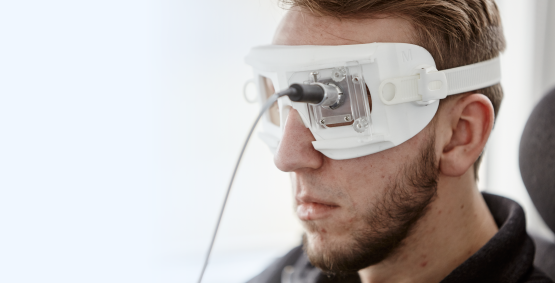KTU Health Telematics Science Institute creates and develops radically innovative non-invasive technologies for industrial measurements, physiological measurements and biophysical processes monitoring which are recognized globally.
KTU Health Telematics Science Institute creates and develops radically innovative non-invasive technologies for industrial measurements, physiological measurements and biophysical processes monitoring which are recognized globally.
Our mission
To protect our inventions through strong patents of the USA, the EU and Japan and to transfer intellectual property to Lithuanian economic entities, the partners of the Institute, to produce high-tech equipment in Lithuania and to export it abroad.
To constantly maintain and grow our effective partner network in the EU, the USA, Canada, Australia, China, Singapore, India, Malaysia, and other countries.
To constantly initiate and provide to the US and EU funding bodies applications for large scale R&D projects.
Our vision
Unique international leader in the field of measurement and monitoring of physical and biological processes, research institute that develops radically innovative non-invasive industrial and physiological measurements and process monitoring technologies.
Our values
The technological development of innovative patented biomedical diagnostics and monitoring systems (innovative brain physiological monitoring technologies) by creating new productive scientific knowledge.
The Institute is capable of developing industrial innovations in the field of its exclusive competences.
Collaborating with professionals from Lithuania, Europe, USA and China, Health Telematics Science Institute (HTSI) have created the world’s first non-invasive absolute value intracranial pressure measurement technology, cerebrovascular blood flow autoregulation monitoring technology, technologies for monitoring and diagnostics of volumetric intracranial waves and brain compliance, and unique flow speed and debit measurement devices. Radical innovations of HTSI have opened new niches in the global medical technology market.
Unique flow speed and debit measurement devices created by the researchers of the Institute and patented by the EU are being mass-produced in Lithuania and exported around the world.
The accumulated unique know-how, the results of experimental research, productive scientific knowledge and the unique laboratory equipment enable our research teams to win and to successfully accomplish scientific projects funded by the European Commission (FP6, FP7), national governments (Lithuania, Switzerland), international corporations and other organisations, and to conduct R&D for industry, business and state organisations.
The Institute has obvious competitive advantage as the developed and patented technologies of monitoring physiological parameters of human brain are unique and have no analogues in the world. Demand for the technologies developed and refined at the Institute is enormous and therefore the outcomes of the Institute’s activity are highly competitive in the global market.
Telematics Science Group was formed in 1972. In 1994 on the basis of the Group, Telematics Science Laboratory was established.
Since 1998, the Laboratory participates in the international group BRAIN-IT research. The members of this group belong to more than 60 science centres from the United Kingdom, the United States, Germany, Italy, Switzerland, Sweden, Belgium, Hong Kong and other countries.
In 2003 European Clinical Protocol for a joint project, a unified software and infrastructure for patient monitoring was enacted. Electronic equipment for collecting and transmitting multi-dimensional real-time physiological monitoring data to specialised databases has been developed.
Health Telematics Science Institute was founded in 2015. On the basis of research conducted at the former Laboratory and at the existing Institute, 14 doctoral theses have been defended.
